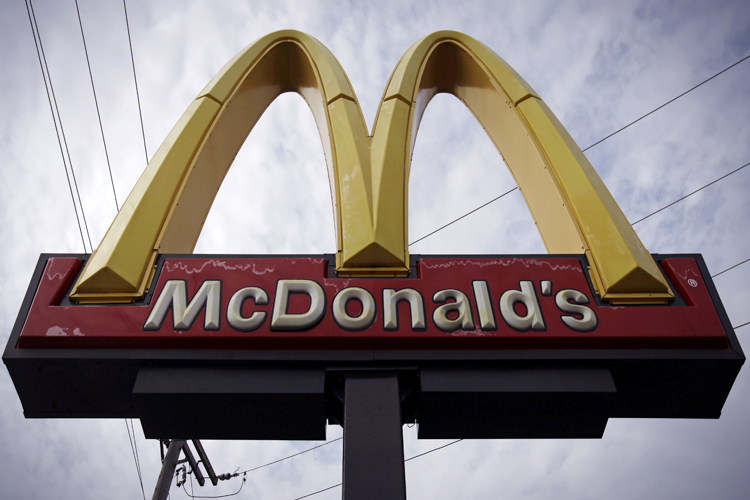Corporations have long used philanthropy as a public relations vehicle, an easy, non-controversial way to deflect attention from bad practices. Accused of systemic racial discrimination? NBD. Just follow Coors’ lead and repent with a donation to the offended minority group. Worried that your product’s reputation is being tarnished by its toxicity? No problem. Take a page from the Philip Morris playbook and distract your consumers with expensive television commercials about all the philanthropy you’ve been doing – feel free to spend more on advertisements about it than on the charity itself. But even in a world where this kind of corporate giving has become the norm, McDonald’s has, as usual, gone the extra mile to be totally, completely, and brazenly shitty. In “Clowning Around with Charity,” a recently released report from Eat Drink Politics, Corporate Accountability International and Small Planet Fund, Michele Simon details the myriad ways McDonald’s uses its so-called philanthropy programs to paint itself as an ally to children’s health and education, all while widening its customer base on the cheap and doing relatively little actual good.
Most of us are familiar with the Ronald McDonald House Charities (RMHC), the branded, franchised charity with the unquestionably noble cause of providing housing to families traveling to get treatment for sick children. The 501(c)(3) nonprofit is huge, with 290 chapters in 58 countries, and has been described by former McDonald’s CEO Jim Skinner as “the heart and soul of McDonald’s.” But there’s one little problem with this description: McDonald’s does relatively little to support its “heart and soul.” According to the report, the charity gets only about 20 percent of its revenue from McDonald’s. Other major sponsors like Coca-Cola, USA Today and Southwest Airlines also make hefty donations (Coke gives over $500,000 and RMHC lists 24 additional $100,000+ sponsors), but get none of the accompanying glory.
And for those wondering if this is all relative and that 20 percent number actually translates into a big share of McDonald’s profits, the answer is no, it does not. In 2011, the Golden Arches reported giving $34 million in cash and in-kind contributions to charity, which may sound like a lot, but in reality means that McDonald’s donates only 0.32% of its pre-tax profits. That’s 33% lower than leading corporations like Coca-Cola and Yum! Brands – hardly model corporate citizens themselves – which on average give 1.01%. Even the average American household donates 4.7% — 14 times more, in terms of percentage of income, than what McDonald’s gives.
Unfortunately for RMHC, this perception can mean a loss of outside donors because would-be givers assume Ronald has it covered. When asked if the name “Ronald McDonald House” makes people believe that McDonald’s sponsors the organization 100 percent, RMHC of the Ozarks responded, “Yes, it’s a common misperception.” RMHC of Southwest Florida echoed that sentiment, saying, “It’s absolutely confusing.” The report found that local Ronald McDonald Houses commonly use disclaimers pointing out how little McDonald’s actually donates to encourage contribution from the community. “Most of the disclaimers we examined explain McDonald’s small financial contributions to the operating budget and emphasize the need for local donations to make up the difference,” the report says.
The company really adds insult to injury when it takes credit for donations that aren’t even from its own bank account. McDonald’s “restaurants” often keep RMHC Donation Boxes out, calling them “our system’s largest ongoing fundraisers” and boasting the more than $50 million they collected worldwide in 2012. “In other words,” the report states, “in 2012, McDonald’s customers gave about 1.5 times more to the charity than the corporation donated overall in 2011.”
Despite its paltry contributions, McDonald’s still loves to tout RMHC, especially when it can help the chain make a sale. In 2010, Consumer watchdog ConsumerWorld.org found that even though McDonald’s claimed it would “donate proceeds from all daily Happy Meal and Mighty Kids Meal sales” to RHMC, the fine print explained that it was only giving one penny for each meal sold. Where’s all the rest of the money going? Aside from lining executives’ pockets, it’s also being spent on publicizing the campaign itself. According to Crain’s, while RMHC would get, at most, $6.4 million through the campaign, Mickey D’s spent almost twice that – $18 million – to advertise it.
Of course, none of this gets to the basic irony of a fast food company that targets children selling itself as a champion of that same demographic’s health. But nothing highlights this perversion more than the corporation’s inching its way into public schools, masking advertising as fundraising and education, and turning schools into marketing vehicles. McDonald’s uses several methods of infiltration. For example, the chain will “sponsor” events called “McTeacher’s Night” where volunteer teachers serve paying parents McDonald’s food to raise money. But it then donates only about 15-20% of the proceeds to the school, less than $1 per student, while enjoying the benefits of the free labor and advertising. McDonald’s also distributes free “educational materials” and even dispatches Ronald himself to perform “educational” shows at schools and libraries. What a surprise that according to McEducation, the key to health is often “balance,” like leading a “balanced, active lifestyle” or attaining a “proper food-energy balance.” In others words: No need to cut out the fries from your diet, just balance them.
For its part, McDonald’s has responded to the report by calling it “shameful and misleading” and “a thinly-veiled attack on our brand.” (There is no veil here, McD. It is a straight-up attack.) A spokesperson told Salon, “McDonald’s categorically rejects this self-serving and biased document,” but declined to directly address a single fact or conclusion.
“Clowning Around with Charity” author Michele Simon has no shortage of recommendations for McDonald’s, including de-branding the Ronald McDonald Houses, retiring Ronald, getting out of schools, and being more transparent. It might sound like a Super Sized order, but this is the company’s “heart and soul” we’re talking about, so it should be worth it.


